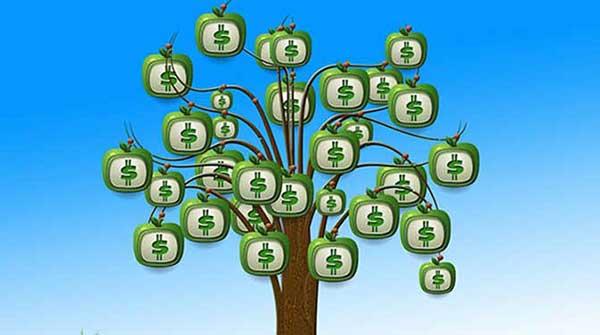Last year was a fiscal blessing for Saskatchewan. Let’s make sure the province doesn’t squander it
 If any farmer walked into their accountant’s office to finish off their year-end statements and discovered that they had made four times more than what they were expecting, they would assume their accountant was cooking the books. But in the case of the provincial government, it’s true.
If any farmer walked into their accountant’s office to finish off their year-end statements and discovered that they had made four times more than what they were expecting, they would assume their accountant was cooking the books. But in the case of the provincial government, it’s true.
Initially, the 2022 budget predicted an almost $500 million deficit, but a huge revenue windfall left the province with a $1.5 billion surplus.
Overall, the government raked in $3.4 billion more in revenue than the budget projected. That’s enough extra money to build 12 new Mosaic Stadiums, home to the Saskatchewan Roughriders.
But this isn’t something the government should expect every year.
 |
| Related Stories |
| Saskatchewan small business tax uptick sparks worry
|
| Saskatchewan needs to keep cutting taxes
|
| Praying for resource booms isn’t a prudent way to budget
|
This is the province’s first balanced budget since 2015 and its largest surplus since 2008. The surplus allowed the government to pay back $1.5 billion in debt this year. That’s estimated to save taxpayers about $6 million a month in interest payments.
But let’s get one thing straight: The provincial government ran a surplus because huge piles of cash unexpectedly showed up at the legislature’s doorsteps. It’s not because provincial politicians suddenly decided to become prudent budgeters.
Tax collections are up $1.7 billion from what was projected in the budget. That’s a 21 percent increase. Non-renewable revenues increased $1.7 billion compared to the budget. That’s a 58 percent increase.
Even high schoolers taking their first accounting class would easily be able to balance the books with this kind of windfall.
And while the government didn’t blow the budget by spending all this new cash, it didn’t hold spending to budgeted levels either. The provincial government still blew its spending budget by almost $1.4 billion in 2022.
Looking ahead to 2023, the government is also expecting a surplus. It’s more good news, and the government plans to use it to pay down even more debt.
Continuing debt repayment is sorely needed. Over the last 10 years, the provincial government has increased the debt from $4.9 billion in 2013 to a projected $18.1 billion at the end of this year. That’s including the two latest repayments.
Instead of practicing fiscal restraint, the government is counting on another year of near-record resource revenues to achieve 2023’s forecasted surplus. The government is projecting resource revenues of $3.3 billion for this year. That’s higher than any number in recent history except for 2022’s record amount.
But provincial politicians shouldn’t get used to seeing government finances through rose-tinted glasses. Even its own budget projects that the debt will start rising again in the future. While the debt will be $18.1 billion at the end of this year, by 2027, the government projects the debt will increase by 23 percent to $22.3 billion.
In 2023, interest payments on the debt will be $708 million. As the debt increases, so will the interest payments. That means more and more taxpayer money will be wasted on interest charges instead of being used for programs or to provide tax relief.
It’s easy to pay down debt when revenues are high and times are good, but a government that genuinely puts taxpayers first keeps paying down debt when times are tough.
Before the next budget day, Finance Minister Donna Harpauer and Premier Scott Moe need to sit down and figure out how to keep the debt going down for the foreseeable future, not just when it is convenient.
The volatility of resource revenues means that government can’t expect this revenue joyride to go on forever. Former premier Brad Wall commissioned a report that recommended the province set up a heritage fund. It’s time for the government to give that report a second look and set Saskatchewan up for a sound financial future.
Last year was a fiscal blessing for the provincial government. It needs to make sure that it doesn’t squander this opportunity with higher spending and instead focuses on keeping the surpluses going and paying down the debt.
Gage Haubrich is the Prairie Director for the Canadian Taxpayers Federation.
For interview requests, click here.
The opinions expressed by our columnists and contributors are theirs alone and do not inherently or expressly reflect the views of our publication.
© Troy Media
Troy Media is an editorial content provider to media outlets and its own hosted community news outlets across Canada.

